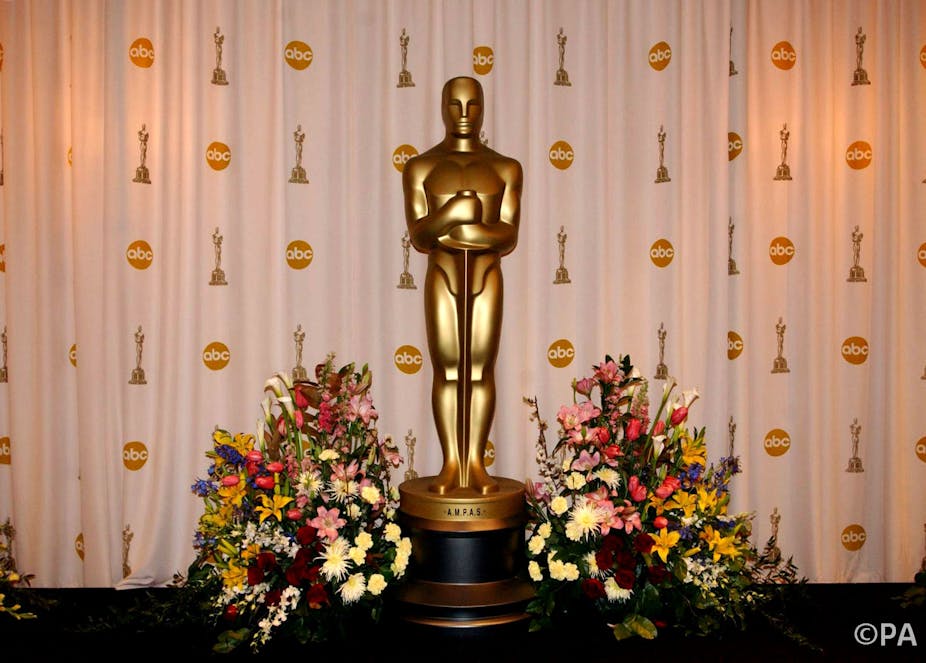This year’s Oscar nominations quickly prompted ire from all quarters. This isn’t unusual, the awards are an easy target. “Everything is awful”, moans the Telegraph: “The Lego Movie, the most successful and critically acclaimed animation of 2014, has inexplicably missed out.”
But more important fish are frying. The media’s main point of criticism has been the Academy’s nomination of only white actors in the four main acting categories, with David Oyelowo in favourite Martin Luther King biopic Selma noticeably snubbed. In 2011 the 20 nominated actors were also entirely white, but before that you have to look back to 1998 to find another entirely white group of nominated actors.
This criticism is clearly deserved. But the problems don’t stop here. Hollywood has also snubbed women. This year, the nominated films are all about the penis.
Most of the nominated films are fantastic. They deserve to be lauded, many are beautiful, thoughtful – but when taken as a group, women simply don’t figure.
Take the best picture nominees. We’ve got films about learning how to become a man (Boyhood, Whiplash). There’s the film about the moral minefield of trying to be a good man (American Sniper). Then the one about trying to get back to the man you could have been (Birdman), the crazy antics men get up to (The Grand Budapest Hotel) and the one about being a male genius whilst trying to hide the fact you like other men (The Imitation Game). And lest we forget, those celebrations of some other great men in The Theory of Everything and Selma.

All the nominated directors – including the foreign ones and the ones working in animation – are men. All the writers – original and adapted – are men. All the cinematographers are men. All of the composers are men. All of the sound editors are men. Five out of the six nominated editors are men.
There is one documentary directed by a woman (Citizenfour), but it’s about a man. There is also a documentary about a woman (Finding Vivian Maier), but it is directed by two men. What’s more, this film is really about a woman who was too afraid to show their work or come out as an artist in their lifetime – perhaps in part because she didn’t have a penis (and therefore trying to become an artist was a bit fruitless; still, at least a man is there to rehabilitate her now).

Of course, there are some women nominated in the categories reserved for them. But let’s take a look at the roles they were nominated for. Among the Best Actress nominees, one is a murderous maven (Rosamund Pike in Gone Girl), one has early onset Alzheimer’s (Julianne Moore in Still Alice), one is an antisocial loner (Reese Wetherspoon in Wild), one a woman rejected by many of the men she works with since they’d prefer a bonus to her having a job (Marion Cotillard in Two Days, One Night), and one is the foil to a genius whose own doctorate and motherhood duties play second fiddle to a man who ends up dumping her for a woman who’ll manually stimulate his genitals while looking at Penthouse magazine (Felicity Jones in The Theory of Everything).
Compare this to the Best Actor nominees. We have a hero (Bradley Cooper in American Sniper), two geniuses (Benedict Cumberbatch in The Imitation Game; Eddie Redmayne in The Theory of Everything), a harmless madman who ends up being hailed as a genius (Michael Keaton in Birdman), and a bonkers rich recluse who eventually kills someone because his mum is a bitch (Steve Carell in Foxcatcher).
The supporting actresses are nominated mainly in roles that support men (Keira Knightley in The Imitation Game, Emma Stone in Birdman, Patricia Arquette in Boyhood). Then there’s Meryl Streep – as a witch (Into the Woods). Only Laura Dern in Wild, playing Reese Witherspoon’s mother, manages to evade being the crutch that most women are expected to be.
I saw Boyhood and thought that Patricia Arquette was the best thing in it. I came out thinking that instead of Boyhood the film should be called Motherhood (or at the very least, Texas). But no – it got named after the penis and the women were overlooked once again.
Clearly, Hollywood needs some severe dressing down for the lack of racial diversity. But this is equally true, and scarily camouflaged, in the case of women. The nominations this year highlight the Oscars as system of self-congratulation, one that refuses to break away from hailing white men as heroes and geniuses and branding women as wild, crazy and dangerous. Worryingly, James Brown still seems to have hit the nail on the head – according to Hollywood, it’s a more of a man’s world than ever.

